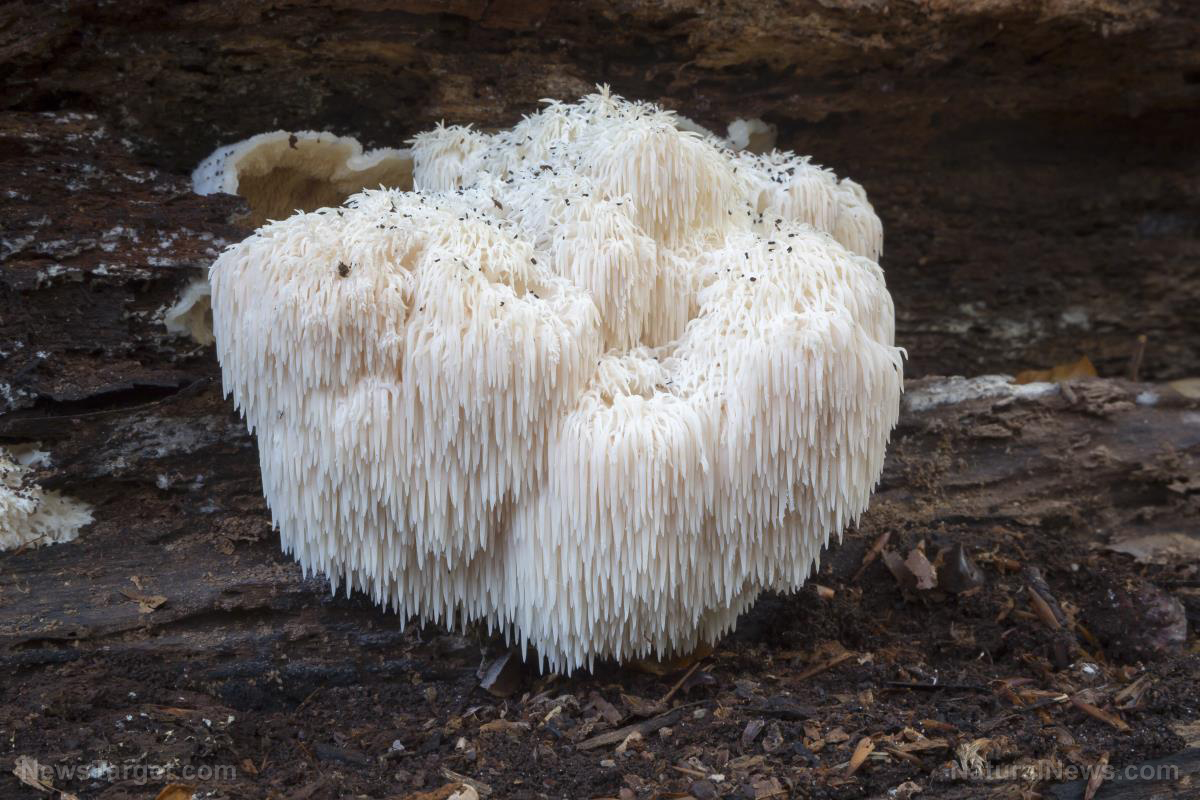Learn about brain health and nootropics to boost brain function
Supporting brain health: Lion’s mane mushroom helps reduce depression and anxiety

( Natural News ) Several studies have shown the potential of lion’s mane mushroom to help address several health problems including those that are related to brain function.
Lion’s mane mushroom (Hericium erinaceus), also known as hedgehog mushroom , is a mushroom native to North America, Asia and Europe. Its fruiting bodies are said to contain polysaccharides that are beneficial to the human body.
This mushroom has a long history of medical uses, especially in Traditional Chinese Medicine (TCM) where it was used to help support brain health. In recent years, its value in supporting cognitive health has been supported by a number of studies. The mushroom helps Reduce depression and anxiety
In a study published in the journal Biomedical Research, the mushroomwas tested on female participants in order to tests its effects on mental health.
After taking lion’s mane mushroom cookies for four weeks, the participants reported reduced depression and anxiety. According to the researchers , this was due to two chemical constituents isolated from lion’s mane’s fruiting body called hericenones and erinacines. These two chemicals stimulate nerve growth factor (NGF) biosynthesis.
NGF takes part in a number of activities in the body that are essential in maintaining and organizing neurons. By stimulating NGF biosynthesis, lion’s mane is able to help improve mental health.
Meanwhile, in a study on mice , researchers from Tohoku University in Japan discovered that lion’s mane mushroom may be used to prevent cognitive dysfunction.
The Japanese researchers administered 10 micrograms of amyloid-beta peptide to the mice on days seven and 14 in their 23-day experimental period. Also, the mice subjects were fed with food containing lion’s mane mushroom over the course of the experimental period.
To measure the results of their study, the team used Y-maze and the novel object recognition tests on the subjects. They discovered that the mushroom prevented the negative effects of amyloid-beta peptide on the spatial short-term and visual recognition memory of the mice. The study suggests that the mushroom might reverse even the effects of amyloid-beta peptide – a protein believed to cause Alzheimer’s disease . Lion’s mane for cognitive impairment
Moreover, in another study conducted by Japanese scientists, lion’s mane mushroom showed potential in improving symptoms of mild cognitive impairment . This is the stage between aging-related cognitive decline and the development of dementia. Its symptoms include problems with memory, language, thinking or judgment.
The team took 30 patients with mild cognitive impairment and gave them 250mg tablets with 96 percent lion’s mane extract to be taken in four pieces for three times a day for 16 weeks. During weeks eight, 12 and 16, the patients underwent observation wherein they showed improvement in their cognitive function as displayed by the increase of their scores on the cognitive function scale. Moreover, the researchers conducted laboratory tests on the patients and saw that the intake of lion’s mane did not result in any side effect.
In addition, the patients’ scores in the cognitive function scale decreased by the time their intake of lion’s mane mushroom tablets stopped. Other uses and health benefits
The lion’s mane mushroom is easy to identify because it looks quite distinct from other mushroom species, with its icicle-like teeth hanging from a stalk in its central part. This white-colored fungus can normally be found along the trunks of a host tree, up to more than 40 feet from the ground.
Lion’s mane mushroom can be eaten raw, cooked, dried or steeped as a tea, and it is more popular in Asian countries such as China, India, Japan and Korea. In these countries, the mushroom is used as ingredients in culinary dishes and for medicinal uses. In addition, there are also health supplements containing lion’s mane mushroom. But as a food, its taste is said to be comparable to a crab or lobster.
Aside from its potential in treating cognitive problems, lion’s mane may also help prevent stomach ulcers , reduce the risk of heart diseases, manage diabetes symptoms, prevent cancer, reduce inflammation and boost the immune system. This is because it has anti-inflammatory, antioxidant and immune-boosting properties.
Follow Health.news to learn more about the health benefits of lion’s mane mushroom.
Sources Include:
Jstage.jst.go.jp 1
Jstage.jst.go.jp 2
PracticalSelfReliance.com
Healthline.com
Read more at www.naturalnews.com